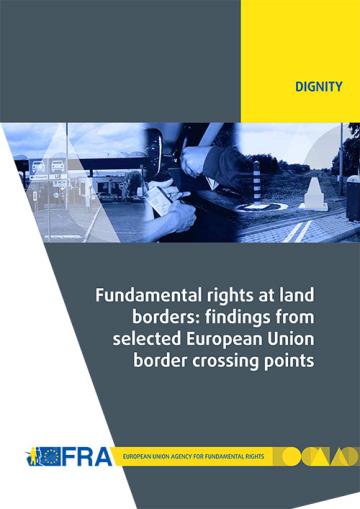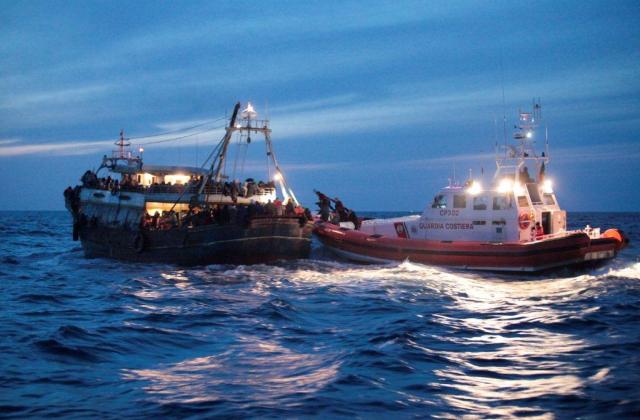Help us make the FRA website better for you!
Take part in a one-to-one session and help us improve the FRA website. It will take about 30 minutes of your time.
Frontières et systèmes d’information
Highlights
- Report / Paper / Summary17décembre2021The EU Agency for Fundamental Rights (FRA) regularly collects data on NGO vessels involved in search and rescue in the Mediterranean. This includes any legal proceedings against them, as well as any difficulties disembarking migrants in safe ports. The International Organization for Migration estimates that from January to 10 December 2021 about 1,654 people have died or gone missing while crossing the Mediterranean Sea to reach Europe to escape war or persecution or to pursue a better life. This is an average of more than four people per day. Deadly incidents have also occurred recently in the Channel (La Manche).
- Rapport / Publication / Résumé9juillet2021La présente note passe en revue les normes relatives aux droits de l'homme qui découlent de la Convention européenne des droits de l'homme et du droit de l’Union européenne (UE) et qui régissent les recours effectifs contre les violations des droits de l'homme aux frontières, les mécanismes de plainte et les enquêtes sur les plaintes concernant des violations des droits aux frontières.
- Periodic updates / Series8décembre2020This report looks at fundamental rights compliance at the European Union (EU)’s external land borders, including rivers and lakes. On 30 January 2020, the European Parliament requested the EU Agency for Fundamental Rights (FRA) to prepare a report on these borders. It noted that the report should focus on the correct application of the safeguards in the European asylum acquis and the provisions of the Schengen Borders Code (Regulation (EU) 2016/399).
- Handbook / Guide / Manual24juillet2020This practical guidance addresses border-management staff in European Union (EU) Member States who work at the operational level. It aims to support them in implementing the fundamental rights safeguards of the Schengen Borders Code (Regulation (EU) No. 2016/399) and related EU law instruments in their daily work, when carrying out controls at external land borders.




















